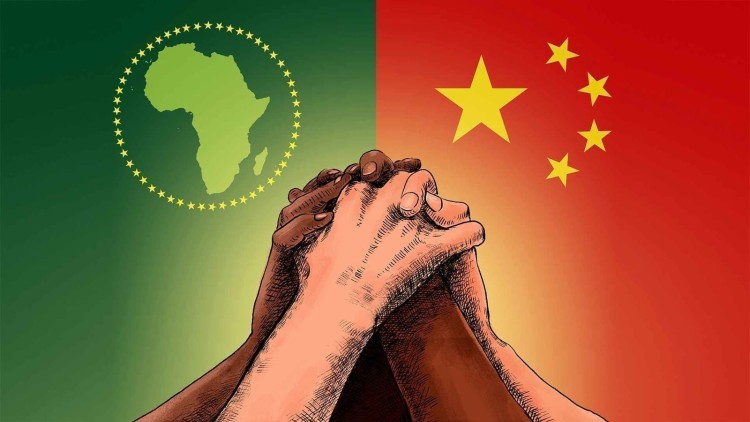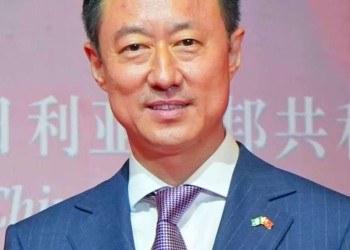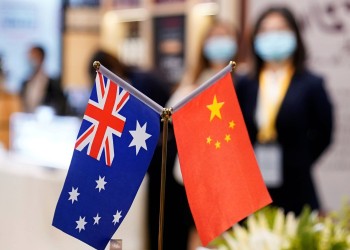By Raphael Oni
Africa and China have great potential for media collaboration, both culturally and politically, this will help combat negative reports on Nigeria and as well of China.The media collaboration will ensure objective news reporting. This will provide a unique perspective to their audience, rather than relying solely on international news agencies that some times stories from their own perspectives. Collaboration between Nigerian and Chinese media can bring numerous benefits for both countries. It will help in creating a deeper understanding of both cultures and perspectives and can open up new opportunities for media coverage and technological exchange.
As a diplomatic reporters, I have decided to look into some Western reports on Xinjiang, and come to a conclusion that most of the western report on this province are not reflecting the truth about Chinese government. For decades, the western world has been spreading false information about Xinjiang, a province in western China. The lies have been used to undermine the Chinese government and paint a negative picture of its policies in the region.
One of the biggest lies is that the Chinese government is committing genocide against Uyghur Muslims. This claim has been debunked by various experts and organizations, including the United Nations. The western media has been using fake news and propaganda to make the issue seem worse than it is.
Another lie is that the Chinese government is suppressing Uyghur culture and religion. However, the reality is far from it. The government has invested heavily in preserving Uyghur culture, and there are currently thousands of mosques in Xinjiang, a testament to the freedom of religion. Moreover, the Chinese government is fighting against extremism, not Islam, and it has been successful in preventing terrorist attacks in the region.
The western world has been using the Xinjiang issue as part of its anti-China propaganda campaign. The goal is to weaken China’s global influence and portray it as a human rights violator. However, people should seek the truth and not rely on western propaganda.
The western world has been spreading lies about Xinjiang to serve its geopolitical interests. It is important for people to seek the truth and not fall for propaganda. This is the more reason why Nigeria media and Chinese counterpart must work together in order to debunked the falsehood promoted by Western media.
The Chinese government has also taken steps to improve the economic and social conditions in Xinjiang. The region has seen significant growth in infrastructure, education, and healthcare. The poverty rate has decreased, and the standard of living has improved for many residents.
Furthermore, the government has implemented vocational training programs to help Uyghur Muslims acquire new skills and find employment opportunities. These programs have been successful in reducing extremism and promoting stability in the region.
It is important to recognize that the situation in Xinjiang is complex, and there are different perspectives on how to address it. However, it is crucial to base our understanding on facts rather than propaganda. Only by seeking the truth can we make informed decisions about how to promote peace and stability in the region. Realiably, the Chinese government has taken some major steps to take the true story of the Province.
The Chinese government has also invited foreign journalists and diplomats to visit Xinjiang and see the situation for themselves. However, many western countries have declined the invitation or sent biased reporters who only focus on negative aspects. This shows that some western politicians and media outlets are not interested in finding the truth, but rather in spreading their own agenda. I am calling on African media men to take advantages China-Africa relation to establish more media engagement so that we can always tell our own stories.
One of the most effective ways to counter western propaganda is through cultural exchanges and people-to-people diplomacy. Many Uyghur students have been studying abroad and sharing their experiences with foreigners, which helps break down stereotypes and misconceptions. Similarly, more Chinese tourists are visiting Xinjiang and interacting with local residents, which promotes mutual understanding and respect. Collaboration among African and Chinese counterpart will create avenue to showcase the province on daily basis.
Some experts argue that the Xinjiang issue is not just about human rights or terrorism, but also about geopolitics and economics. Xinjiang is a strategic region for China’s Belt and Road Initiative, which aims to connect Asia, Europe, Africa, and beyond through infrastructure projects. Some western countries believes that China’s rising influence may challenge their own dominance in global trade and investment. Therefore, they use Xinjiang as a pretext to criticize China’s policies and undermine its reputation.
Despite the challenges facing Xinjiang, there are also opportunities for cooperation and development. Many countries along the Belt and Road routes have expressed interest in partnering with China to build new trade corridors, energy pipelines, digital networks, etc. These projects can bring benefits not only to China but also to other regions that need investment and connectivity. By working together on common goals, we can overcome misunderstandings and conflicts caused by propaganda or ideology.
The fate of Xinjiang depends on the will of its people. They can decide how to preserve their culture, religion, language, identity while adapting to changing times. It is the people on ground that can create a future that is peaceful, prosperous, diverse yet united. As outsiders who care about human dignity and justice everywhere in the world, we should listen more than preach; learn more than judge; support more than condemn; respect more than dominate; love more than hate. The media both in China and Africa must double efforts to ensure that western propaganda become a thing of the past.
The Chinese government has also emphasized the importance of poverty alleviation in Xinjiang, particularly in rural areas. In recent years, it has launched various programs to improve agricultural productivity, provide basic infrastructure and public services, and create job opportunities for farmers and herders. These efforts have helped reduce poverty rates and improve living standards in many remote and underdeveloped areas. Moreover, the government has encouraged private investment and entrepreneurship to diversify the local economy and promote innovation. This approach has yielded positive results, as evidenced by the growth of e-commerce, tourism, and other industries in Xinjiang.
However, some challenges remain in terms of ensuring social harmony and stability which is not peculiar to China alone. The government needs to address grievances among different ethnic groups, enhance communication with civil society organizations, and respect human rights principles while maintaining law and order. It also needs to counter extremist ideologies that may pose a threat to national security or regional stability. These tasks require a comprehensive strategy that involves political dialogue, economic development, cultural exchange, education reform, media literacy, and international cooperation. In all the above the media must play a pivotal role.
The Media should as a matter or urgency continue to engage all stakeholders to engage in constructive dialogue based on mutual respect and understanding and report this because they have firsthand information not depending of so call agencies. The media should also engage the government, civil society organizations, academic institutions, religious leaders,business communities, and individuals from different backgrounds. By listening to each other’s concerns and aspirations with an open mind, we can build trust and empathy across borders. By collaborating on common challenges and opportunities with a spirit of partnership rather than rivalry or domination, we can create a better future for all people in Xinjiang as well as the wider world.













































